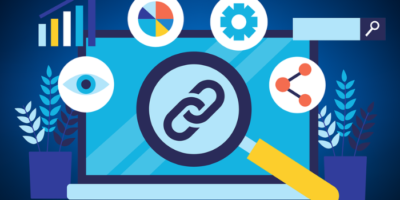As we continue to move more and more of our lives online, it is becoming increasingly important to protect your online presence with sound cybersecurity practices. Cybersecurity is the practice of protecting digital information, networks, and systems from malicious attacks and unauthorized access. As our lives become more connected to the internet, it is even more important to be aware of the potential threats that exist online and take the necessary steps to protect yourself.
What is Cybersecurity?
Cybersecurity is the practice of protecting digital information, networks, and systems from malicious attacks and unauthorized access. Cybersecurity is an ever-evolving field, as hackers and attackers are constantly innovating and finding new ways to gain access to valuable data and systems. As such, it is important to stay up-to-date on the latest cybersecurity practices and trends.
In the most basic sense, cybersecurity is all about protecting your online presence. This includes protecting your personal information, such as passwords and credit card numbers, as well as your digital devices and networks.
Why is Cybersecurity Important?
Cybersecurity is important because it helps to protect your digital information, networks, and systems from malicious attacks and unauthorized access. Cyber attackers are constantly trying to find ways to gain access to valuable data and systems, and if they are successful, they can cause serious damage. For example, a successful cyberattack could lead to the theft of confidential information, the damage or destruction of data, or the disruption of services.
By protecting your online presence with effective cybersecurity practices, you can reduce the risk of a successful attack and mitigate the potential damage.
What Damages Can Cybersecurity Protect Against?
Cybersecurity can protect against a variety of malicious activities, including data theft, data corruption, and disruption of services. Data theft occurs when cyber attackers gain access to sensitive data and steal it for their own use. Data corruption occurs when cyber attackers alter or delete data, which can lead to significant losses. Finally, disruption of services occurs when cyber attackers disrupt the normal operation of a system, which can lead to significant downtime and lost revenue.
How Can I Secure My Online Presence?
There are a variety of ways to secure your online presence, including implementing strong passwords, using two-factor authentication, and keeping your software up-to-date.
Strong passwords are an important part of protecting your online presence. Make sure to use passwords that are long, complex, and unique. Avoid using easily guessable passwords such as “123456” or “password”.
Two-factor authentication is an additional layer of security that requires a second factor, such as a code sent to your phone or a biometric scan, to verify your identity. This makes it more difficult for cyber attackers to gain access to your accounts.
Finally, it is important to keep your software up-to-date. Software vendors frequently release security updates to address newly discovered security vulnerabilities. By keeping your software up-to-date, you can reduce the risk of a successful attack.
Tips to Stay Safe Online
In addition to implementing strong passwords and using two-factor authentication, there are a few other tips to stay safe online.
First, be aware of suspicious emails and never click on links or open attachments from unknown senders. Cyber attackers often use phishing emails to gain access to valuable data.
Second, use a secure connection when accessing online accounts or sending sensitive data. Make sure to look for theat the beginning of the URL and a lock icon in the address bar.
Finally, be aware of your online activity and take steps to limit the amount of personal information you share online.
Conclusion
In conclusion, cybersecurity is a critical practice for protecting your online presence. By implementing strong passwords, using two-factor authentication, and keeping your software up-to-date, you can reduce the risk of a successful attack and mitigate potential damage. Additionally, be aware of suspicious emails, use secure connections, and limit the amount of personal information you share online. By following these tips, you can protect your online presence and stay safe online.





















Comments